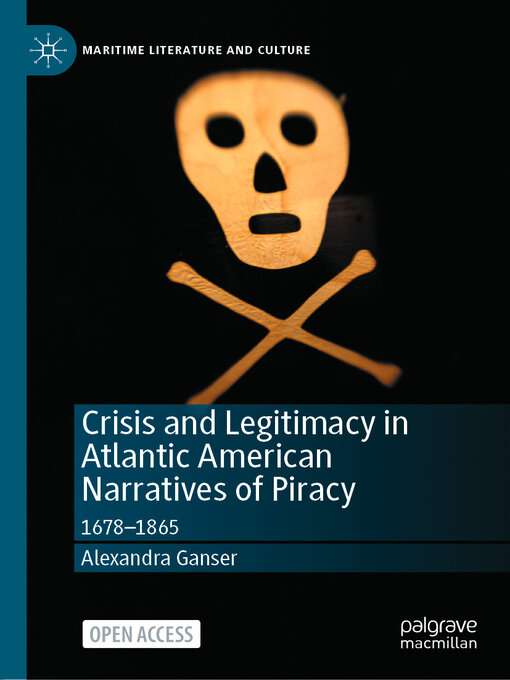This Open Access book, Crisis and Legitimacy in Atlantic American Narratives of Piracy: 1678-1865, examines literary and visual representations of piracy beginning with A.O. Exquemelin's 1678 Buccaneers of America and ending at the onset of the US-American Civil War. Examining both canonical and understudied texts—from Puritan sermons, James Fenimore Cooper's The Red Rover, and Herman Melville's "Benito Cereno" to the popular cross-dressing female pirate novelette Fanny Campbell, and satirical decorated Union envelopes, this book argues that piracy acted as a trope to negotiate ideas of legitimacy in the contexts of U.S. colonialism, nationalism, and expansionism. The readings demonstrate how pirates were invoked in transatlantic literary production at times when dominant conceptions of legitimacy, built upon categorizations of race, class, and gender, had come into crisis. As popular and mobile maritime outlaw figures, it is suggested, pirates asked questions about might and right at critical moments of Atlantic history.
- Newly Added eBooks
- Most Popular eBooks
- Try Something Different
- Endgame Education
- Indie Authors
- See all ebooks collections
- Newly Added Audiobooks
- Most Popular Audiobooks
- Try Something Different
- Audiobooks for the Whole Family
- Great Narrators
- See all audiobooks collections
- Favorite Magazine Picks
- Health & Fitness Magazines
- Sports
- Food & Cooking
- Business & Finance
- Crafting
- News
- Magazines are Here
- See all magazines collections
